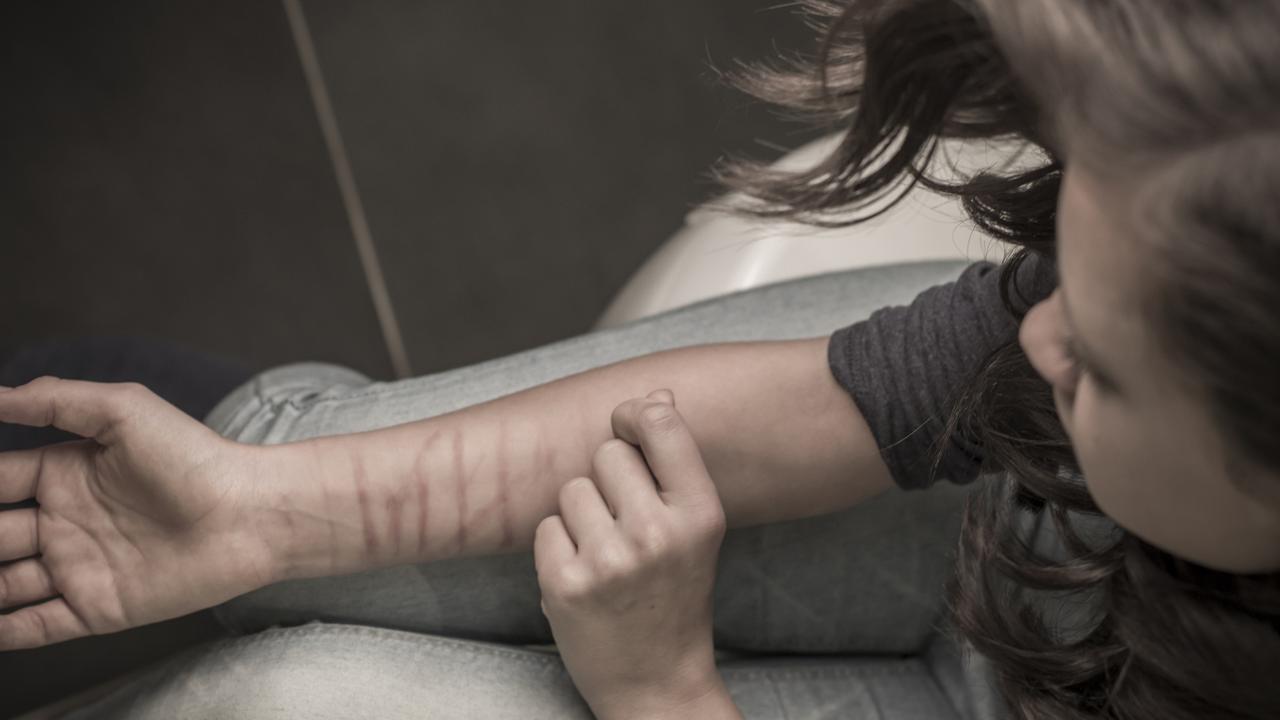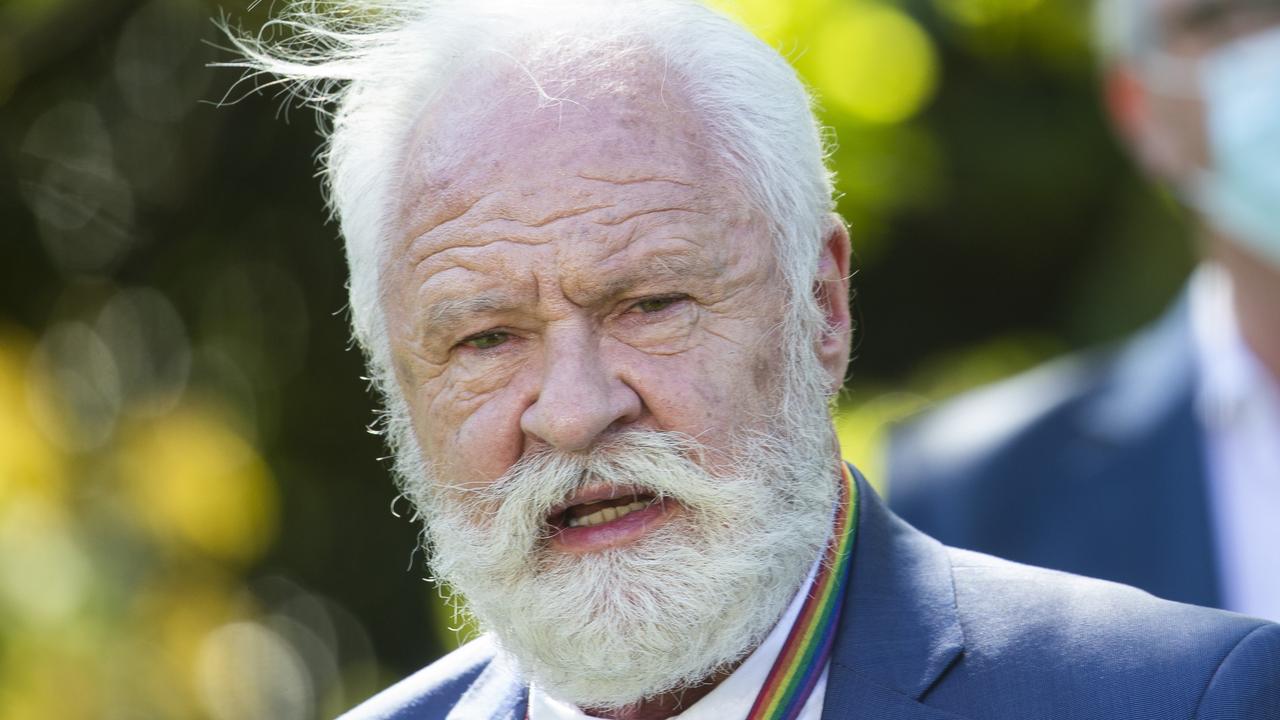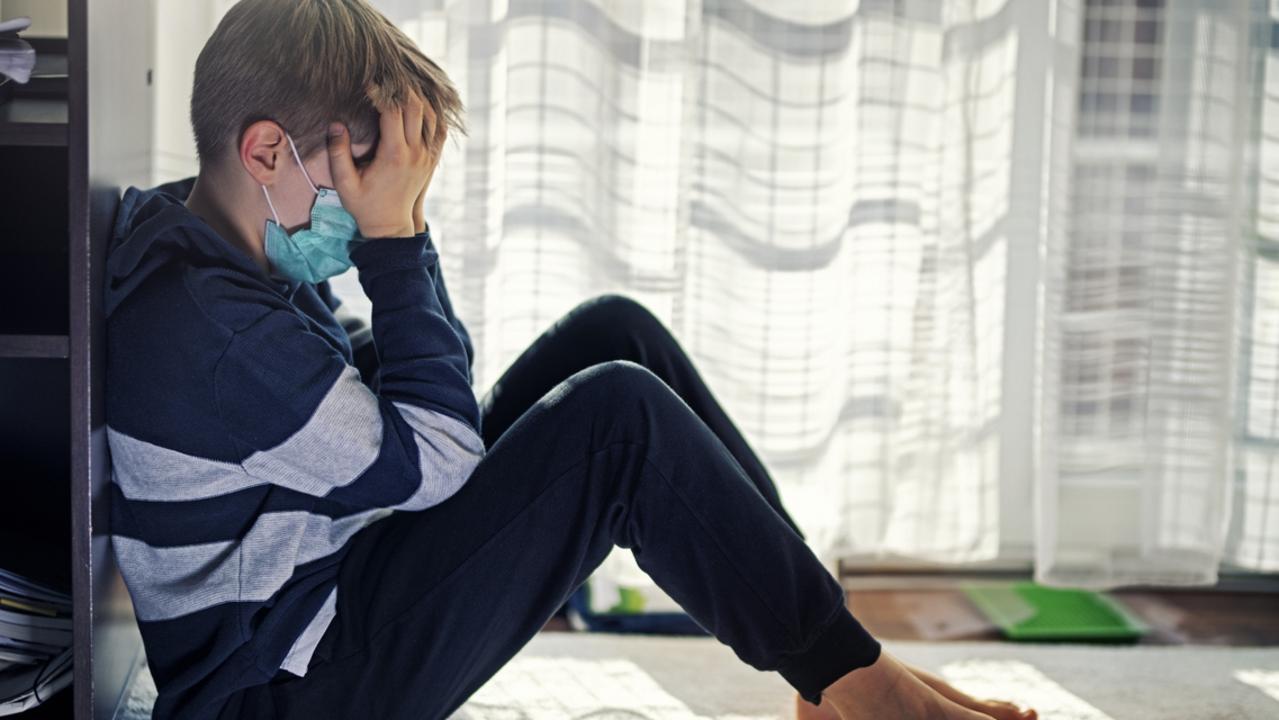Experts reveal spike in self-harm among teens during pandemic
Thousands of calls from children in desperate need of mental health support were not answered during the pandemic as services were overwhelmed with demand.
Victoria
Don't miss out on the headlines from Victoria. Followed categories will be added to My News.
More than 76,000 calls to Kids Helpline from children desperately seeking mental health support during the pandemic went unanswered.
Giving evidence to Victoria’s Pandemic Declaration Accountability and Oversight Committee on Friday afternoon, Yourtown advocacy and research head Kathryn Mandla revealed only 38 per cent of almost 123,000 phone calls to Kids Helpline in Victoria could be answered during the pandemic in 2021.
“That was a 20 per cent increase in demand from 2019 and on our current funding levels we could only respond to 38 per cent of these attempted contacts – just over 46,000,” Ms Mandla said.
“Just over 76,000 couldn’t get through.”
“We don’t know the severity of the issues that were being raised by those young people if they had been able to get through.
“Given the intensity, complexity, the toll it has taken on our amazing workforce in Kids Helpline, our counsellors who are working around the clock 24/7 to provide that support, they have certainly felt an increase in much much greater distress since the pandemic began, which is also taking a toll on their wellbeing,” she said.
Ms Kealy said: “Knowing that there were this many calls that they couldn’t answer would be an immense pressure, mental health strain on them themselves”.
She asked Ms Mandla if Kids Helpline approached the state government for additional funding.
“I’ll need to take the details on notice … My understanding is that our service delivery team did approach the Victorian government and with the increase in demand that led to the two $500,000 payments. We are seeking additional support from the Victorian government and we will continue having conversations with them,” Ms Mandla said.

Fears over spike in self-harm among teens
It comes as the state’s top chief psychiatrist says there has been a “concerning” rise in teens attending emergency departments for self-harm at the height of the pandemic.
Giving evidence on Friday morning to Victoria’s Pandemic Declaration Accountability and Oversight Committee, which included other mental health experts, Dr Neil Coventry said while the number of mental health-related presentations to emergency departments had stabilised to pre-pandemic levels, there were still specific areas of concern.
“There are specific areas I want to focus on … one was self-harm and suicidal ideation presenting to the emergency department and the sharpest rise was actually with young people, which was very concerning,” Dr Coventry said.
“There was a lot of concern – would we actually see an increase in the overall suicide rate? Thus far we haven’t, we’ve certainly been very concerned about suicide attempts but the actual rate of completed suicide hasn’t actually changed during the pandemic.
“But we certainly are watching that closely and we’re working collaboratively with the Coroners Court to look at that sort of data.”

Dr Coventry said there had been a rise in presentations of eating disorders such as anorexia nervosa in young people.
“Again some of the concerns were these young people presenting to the emergency department often with very serious physical complications of their illness.
“We’re working with our partners to try and understand the various factors and what we can possibly do to mitigate against this. Obviously it’s multifactorial and the causes are really complex.”
He said that ongoing lockdowns had not exacerbated mental health issues in Victoria.
“We’ve looked at this data and I’ve liaised with my colleagues in other jurisdictions. We might think naively that the factor would be relating to lockdowns, it doesn’t seem to be.
“In states where there’s been much less restrictions than we had in Victoria, they seem to be showing the same trends. So there’s clearly some other factors at work.”
Shepparton MP and committee chair, Suzanna Sheed, also asked Dr Coventry about Shepparton’s “significant rate” of youth suicides.
“We did a lot of work with the Goulburn Valley community … we have a very good working relationship with the coroner getting real time data, the areas I find about are mental health patients who attempt or complete suicide,” Dr Coventry said.
“But we need to understand that in the context of what’s happening in the general community and what we know has happened certainly in Goulburn Valley, there are clusters of vulnerability.

“So particularly, we’re concerned about Indigenous, young people, LGBTQI+ community, people with dual disabilities, alcohol and other drug use people from linguistically diverse communities.
“When we get that real time data from the coroner, we correlate that so I get reportable deaths, which are the mental health patients, we try and understand in the context of what is actually going on. We also look at the longer term data because suicide is a reasonably rare event.”
Dr Coventry also said children and young teenagers were the most “vulnerable group” during the pandemic.
“The impact of the lack of socialising and their opportunities, academically cognitive development at schools with school closures.
“I’d say the results were variable, some young people perhaps the group ... with developmental disorders, like high functioning autism spectrum disorder, some of those young people actually did better than you might have predicted being able to access online learning without the pressures because the socialising for them could be quite stressful.”
Opposition mental health spokeswoman Emma Kealy also grilled Dr Coventry, questioning what input he had provided for the creation of pandemic orders.
“In terms of what we do on a daily, weekly, monthly basis we are giving the sort of temperature of what’s actually happening,” he said.
Ms Kealy fired back saying: “If you had of provided the input that closures of schools as you went through, that would have significant social impacts on students … if you had of been able to provide that input beforehand perhaps it could’ve prevented harm”.
“I think we are providing that continuously, that’s perhaps not quite correct … that sort of information is really well accessible,” Dr Coventry responded.
More Coverage
Originally published as Experts reveal spike in self-harm among teens during pandemic








